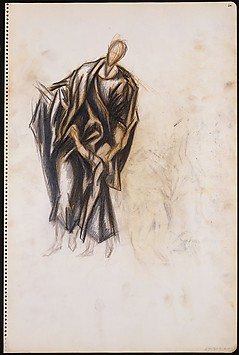
During Lent, the example of St. Thérèse of Lisieux can give comfort and courage for the saint of Lisieux had gone through suffering and had written about it.
While Thérèse suffered, she found in the writings of St. John of the Cross comfort and encouragement. At times, she felt near to blasphemy and despair, but from St. John, she learned that these were signs of progress and development of her faith and not denial of it. One of the signs of the authenticity of her faith was its growth. She said that at the time of her greatest darkness, she made more acts of faith than at any other time. In her short life, we see extraordinary, rapid, and profound development in the virtue of faith.
She began her life of faith surrounded by a loving, close-knit family of faith. The faith of her family had been tried in the French Revolution and in the Prussian occupation of France. Faith in God and trust in His divine providence had sustained them in times of suffering. Thérèse’s immediate family had daily Mass and prayers. They breathed and lived their Catholic faith. The world of heaven was as real to them as the world of earth. During the tragic times of her mother’s illness and death from cancer, and the mental decline of her father, it was her faith that gave peace to Thérèse in the midst of such traumatic suffering. They were now enjoying the happiness of heaven, rewarded for their fidelity, uncomplainingly sharing in the passion of Christ.
Her parents were both business people, a jeweler-watchmaker and a lace maker. Her image of God was colored by this. You gave God something and He paid you. During a two-month period of preparing for her First Holy Communion, she made 1949 sacrifices and 2773 invocations. Her image of God was also strongly influenced by her image of her father. He was intelligent, good-looking, tall, heroic, a swimmer, a contemplative, lover of nature, hiker, mountaineer, a devout, tender and unselfish father, a man admired by all who knew him. For Thérèse , God was “Papa, le bon dieu: Father, the good God.”
When Thérèse was afflicted with scruples, she turned to her departed siblings for help. Her little brothers and sisters, now enjoying the glory of heaven, helped her overcome her affliction. She had loved ones in heaven who loved, and so heaven was a place of love. God was a god of love. She said that there was a thin veil between heaven and earth. Effortlessly, her sure faith penetrated that veil. This event and her Christmas conversion experience taught her that God was not a bargaining God but one who was unconditional, merciful, all-powerful, and loving.
The first terrible challenge to Thérèse’s faith was when her beloved father began to lose his mind. Instead of the steady, calm man she knew, he began to act in a strange manner. He gave away exorbitant sums of money, kept a loaded revolver under his pillow to protect his daughters from imagined enemies, and he disappeared from home, only to reappear days later far from Lisieux. Eventually, he was committed to the mental hospital in Caen. An image of God based on her father was no longer adequate for Thérèse. God had to be something greater and more vast. She painfully learned that any image or thought we have of God is not God. The object of faith is not words or images but the very person of God Himself. It is only through the gift of supernatural faith that we can know God as He truly is and be united with Him. That faith is certain, but obscure.
Thérèse experiences dryness and aridity in prayer, no longer did she feel the sweetness of His presence as in her younger days. Toward the end of her short life, in the midst of her terrible suffering, she even found it hard to say words of prayer, or to imagine Him. As she told her sister Celine, “I just love Him.”
With the growing darkness came a deeper love and trust, simpler and purer. She wrote out the words of the creed in her own blood. She new that while scripture and the dogmas of the Church did not tell her everything about God that is true, everything that they did tell was true. In temptation, she recited words of the Gospels and the creed of the Church, knowing that those words would lead her directly to the person of God. They also prevented her from going astray. They set boundaries, inside of which was truth, outside error. Thus in the furnace of her pain, she made more acts of faith than at any other time in her life. Her deep joy, even her sense of humor developed; her courage was strengthened and she could even say, “Smiling, I brave the fire.”
The virtues of faith, hope, and charity were so connected that as one grew, the others grew also. In the darkness of faith, her love of God, of sinners, of the missions, of the whole world grew; in her trust in God, her faith grew; in her love, her faith became more secure and certain.
She says that she is like a person in a foreign land surrounded by a dense fog. There was no sight of the homeland. On feastdays, the fog lifted and she got a glimpse of the homeland and got some relief. Almost immediately, the fog descended plunging her into a deeper darkness. A specific temptation for her concerned the afterlife. Even Satan jeered and mocked her belief in heaven. She tells us that in place of the veil there was now a wall between heaven and earth. That state lasted until the very end of her life.
The example of Thérèse’s deep faith in the midst of trials was God’s gift to the Church and the world in a time of rampant atheism. Today, her message is still needed. She still speaks, calling the world to faith in the existence, goodness, mercy and presence of God.
Reprinted with permission from The Carmelite Digest
Copyright 2017, Father James Geoghegan, OCD
‘Arm yourselves with the armor of faith and the sword of truth. Pray for the grace to forgive and to ask for forgiveness – and for the healing of wounded bodies and souls.’
Try the Daily Disconnect as part of your Daily Meditation


💒 thank you Father James for giving us this profound truth in the life of St. Therese. It’s very helpful to understand more clearly my moments of darkness and get me through. 🙏🏼 Semper Fi!